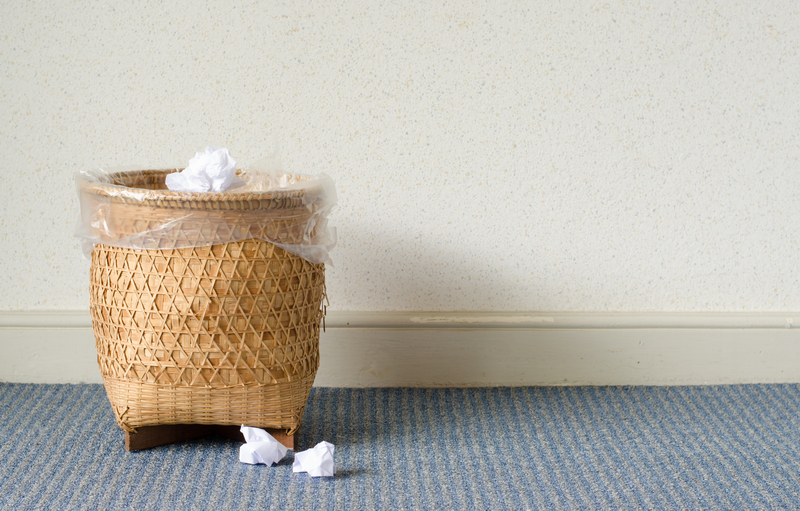The Future of Waste Management Lies in Rubbish Removal Bags
Waste management is undergoing a transformation, and at the heart of this change is the humble rubbish removal bag. Once relegated to the role of simple trash carriers, these bags are now front and center in the conversation about sustainability, efficiency, and the overall environmental footprint of our waste disposal systems. Read on to discover why rubbish removal bags are shaping the future of waste management and how embracing these innovations can make a remarkable difference in our communities and planet.

The Evolution of Rubbish Removal: From Trash Cans to Smart Bags
The concept of waste disposal has changed remarkably over the years. While traditional waste collection methods, such as metal bins and manual collection services, dominated for decades, the emergence of new waste removal techniques has redefined modern waste handling. At the core of this evolution lies the improved design and versatility of waste removal bags.
Why Rubbish Removal Bags Are Gaining Popularity
- Convenience: Lightweight, portable, and user-friendly, rubbish removal bags simplify the process of waste collection for both households and businesses.
- Cost-Effective: Compared to costly bins and containers, these bags offer a much more affordable solution.
- Space-Saving: When not in use, they collapse flat, making them easy to store and transport.
- Adaptive: Designed to handle various forms of waste - from household refuse to construction debris.
Advanced Materials: The Game Changer
Newer rubbish collection bags are no longer just simple plastic. Innovations include:
- Biodegradable plastics that decompose safely in landfills.
- Compostable materials made from corn starch and other organics, breaking down harmlessly in composting facilities.
- Recycled content that reduces reliance on virgin plastics and supports the circular economy.
- Heavy-duty reinforced plastics designed for hazardous or bulky waste streams.
How Rubbish Removal Bags Are Revolutionizing Waste Management
The future of rubbish management promises smarter, more sustainable, and efficient handling of waste, powered by innovative bags designed for specific needs. Let's explore how these bags are making a tangible impact:
Smart Rubbish Removal Bags: Integrating Technology
- Smart sensors: Some futuristic waste bags now include embedded RFID or QR codes which enable tracking, data collection, and efficient sorting.
- Odor Control and Antibacterial Features: Advanced bags use infused materials to prevent odor and inhibit bacterial growth, ensuring a healthier environment.
- Automated sorting: Integration with smart bins can help identify the bag's contents (recyclables, compost, hazardous materials), improving downstream sorting and recycling rates.
Sustainability and Eco-Friendliness
Growing environmental awareness is shifting manufacturers and consumers toward eco-friendly rubbish removal bags. Key advancements include:
- Reduction of single-use plastics: Newer designs emphasize materials that can either decompose naturally or be recycled multiple times.
- Supporting the circular economy: When rubbish collection bags are made from recycled content, the process sustains itself, reducing environmental impact over time.
- Enabling composting: Compostable bags simplify food scrap collection and contribute directly to the creation of nutrient-rich compost.
The Role of Rubbish Removal Bags in Different Sectors
The application of rubbish removal bags extends far beyond household use. Sectors such as construction, healthcare, hospitality, and industrial operations are all benefitting from advances in bag technology. Here's a breakdown:
Construction and Renovation
- Heavy-duty builders' bags: Designed to hold large volumes of rubble, concrete, and scrap, revolutionizing site clean-up and disposal logistics.
- Asbestos and Hazardous Waste: Specialized removal bags offer safe, compliant handling of dangerous materials, ensuring worker safety and regulatory compliance.
Retail, Hospitality, and Events
- Coloured sorting bags: Facilitate on-site waste segregation at events and public venues, improving both recycling rates and public compliance.
- Odour-blocking bags: Vital in restaurants and hotels, these maintain freshness and hygiene in busy settings.
Medical and Biohazard Waste
- Biohazard removal bags: Made from puncture-resistant materials, these bags safely transport infectious and sharp waste from hospitals and clinics.
- Colour-coded systems: Enhance accuracy in hazardous waste segregation, reducing health and environmental risks.
The Environmental Impact of Smart Rubbish Removal Bags
One of the most promising developments is the positive environmental impact that advanced rubbish removal bags can deliver:
Reducing Landfill Volumes
- Efficient source separation: Clear labelling and colour-coding of rubbish collection bags improve recycling and composting rates, diverting large volumes from landfills.
- Minimizing contamination: With improved bag technology, recyclables and food scraps reach their intended destinations with less cross-contamination.
Lowering Greenhouse Gas Emissions
- Biodegradable alternatives: Bags that break down naturally produce fewer emissions compared to traditional plastics.
- Transport optimization: Lightweight bags reduce the fuel needed for waste collection lorries, cutting emissions further.
Promoting the Circular Economy
- Reusable and recyclable bags: Some removal bags are designed for multiple uses or constructed from recycled plastics, keeping materials in circulation longer.
- Incentivizing sustainable behaviour: Municipalities, businesses, and individuals are more likely to recycle and compost when provided the right tools, such as purpose-built bags.
Challenges and Limitations Facing Rubbish Removal Bags
Despite their advantages, rubbish removal bags face several hurdles:
- Cost of Innovation: The latest designs and materials often come at a premium, which can be a barrier for large-scale adoption, especially in developing regions.
- Disposal Standards: Variations in local waste processing facilities may not always handle new materials properly, limiting compostability or recyclability benefits.
- Consumer Education: Many users are unaware of the proper way to use and dispose of new-generation bags, risking contamination and reduced effectiveness.
Best Practices: Maximizing the Impact of Rubbish Removal Bags
For rubbish removal bags to reach their full potential in waste management, both individuals and organizations should consider the following best practices:
- Choose the right bag for the waste stream: Whether food scraps, paper recyclables, or hazardous waste, using the proper bag ensures efficient processing.
- Educate users: Clear communication on how and where to dispose of specific bags reduces confusion and contamination.
- Support localized recycling and composting: Work with local councils and waste processors to ensure bags are compatible with existing facilities.
- Encourage innovation: Support policies and organizations that are investing in next-generation bag materials and designs.
Case Studies: Success Stories with Rubbish Removal Bags
Citywide Composting Initiatives
Several major cities have rolled out compostable rubbish bags for residential food scrap collection. By providing households with these bags, municipalities have seen:
- Higher participation rates in composting programs.
- Significant diversion of organic waste from landfills.
- Reduction in landfill methane emissions, a potent greenhouse gas.
Construction Debris Solutions
Contractors and builders are turning to heavy-duty builders' removal bags to manage site waste. Results include:
- Improved on-site safety by reducing scattered debris.
- Efficient transportation and disposal of bulky and hazardous materials.
- Waste sorting at source, paving the way for higher construction recycling rates.
The Role of Policy and Regulation
Governments are recognizing the value of innovative rubbish bag solutions in public waste programs. By introducing standards for bag materials, colour-coding, and end-of-life processing, they are:
- Boosting recycling rates through better curbside sorting.
- Reducing illegal dumping by providing accessible solutions for bulky and specialized waste streams.
- Supporting local manufacturing of eco-friendly rubbish removal bags.

The Future: What's Next for Rubbish Removal Bags?
The next decade promises further breakthroughs in waste removal technology. Early trends include:
- Smart integration: Bags embedded with IoT sensors will transmit data about waste streams, enabling optimized collection and processing.
- Greater material diversity: Expect a surge in plant-based and even edible bag materials for organic waste streams.
- Personalized solutions: With on-demand rubbish removal bags tailored to local needs and regulations, the one-size-fits-all model will be phased out.
Conclusion: Rubbish Removal Bags - Small Change, Big Impact
The ascent of rubbish removal bags in modern waste management is more than just a trend - it signifies a fundamental shift toward smarter, cleaner, and more sustainable cities. With continual innovation in materials, design, and integration with technology, these humble bags have the power to redefine how we dispose, recycle, and reuse our everyday waste. Embracing these advances offers a pathway to not only reduce landfill dependency but also to advance a greener future for generations to come. The future of efficient, eco-friendly waste management truly does lie in the evolution of rubbish removal bags.
